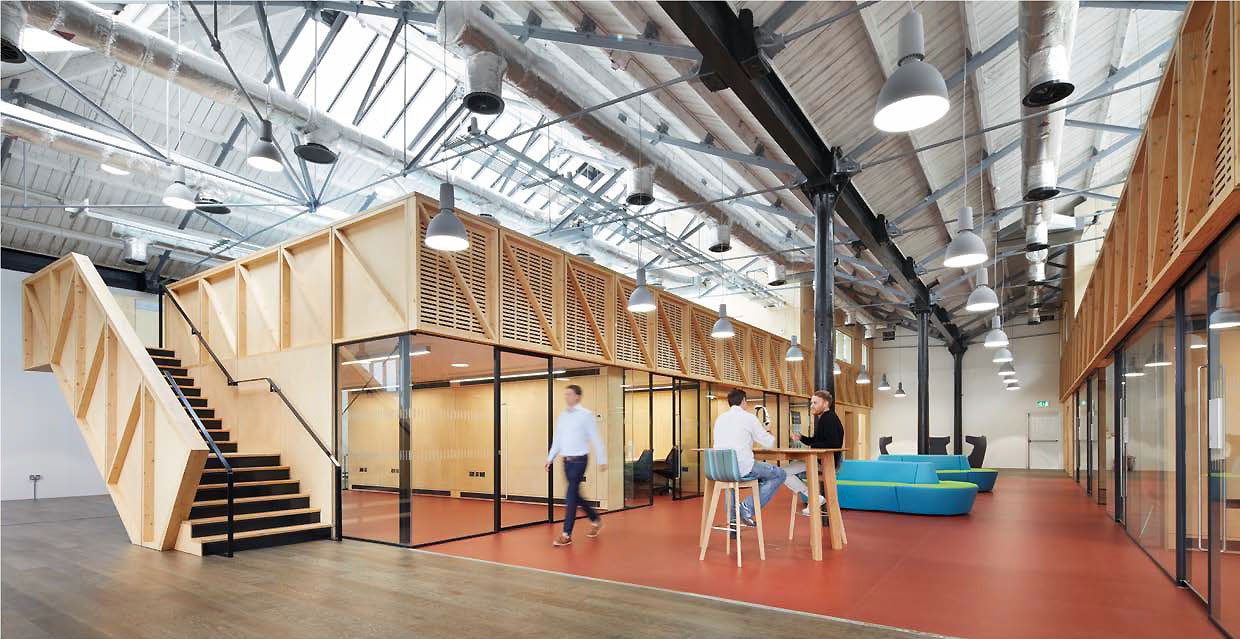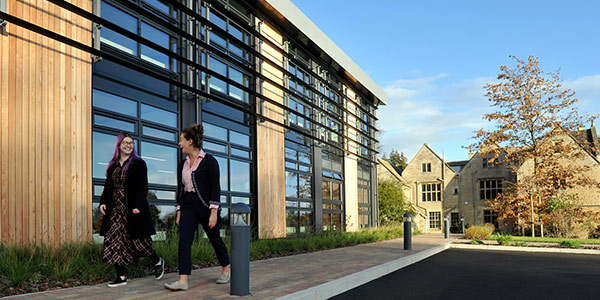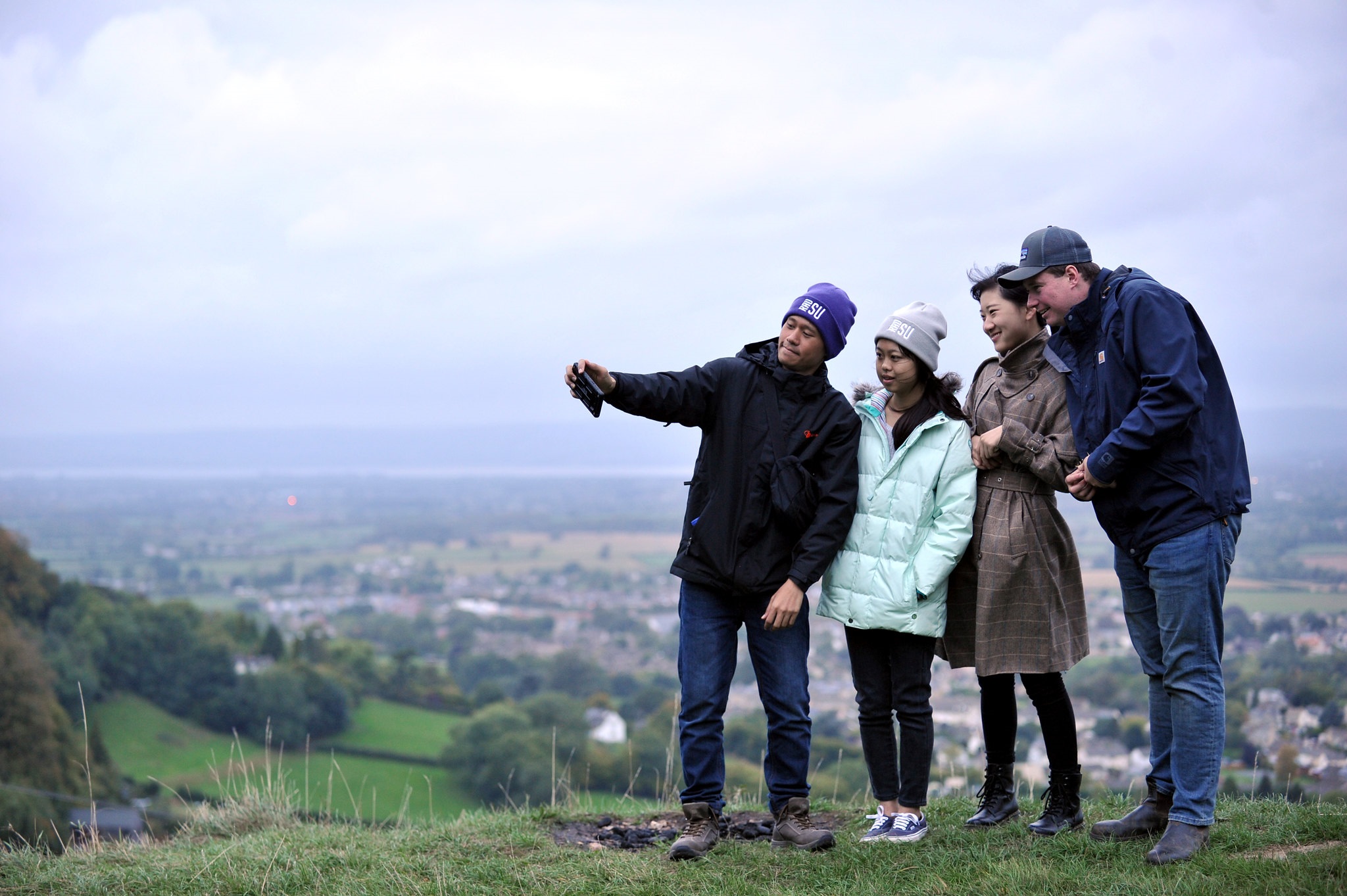MSc Heritage and Archaeology
Heritage and archaeology is not only the study of the past, it is the study of ourselves. Archaeology feeds into current political debates around identity, how we feel about our past, and who we want to be.
Course overview
The Historic Environment sector is incredibly broad, taking in everything from museums and galleries, through to historic buildings, archaeological excavations and community projects. The MSc in Heritage and Archaeology responds to this by providing you with our broadest choice of modules and the flexibility to complete a tailored heritage sector degree to meet your unique professional needs. It is also a great programme for learners who know they want to work in the heritage sector but are unsure which area they will be most suited to.
The MSc in Heritage and Archaeology is designed to address the professional skills gaps existing at specialist and managerial level within the heritage industry. With a core module giving you a great introduction to the sector, opportunities to undertake a specialist project by practice or research, and optional modules covering Landscape Archaeology, Historic Buildings, Excavation and Artefacts, Practical Conservation, Retrofitting and Sustainability and |Heritage Interpretation, this is the perfect course to shape your first steps into the sector or expand your specialist knowledge within it.
The RAU has been at the forefront of land-based education for 180 years, and to study heritage and archaeology here is a natural choice. For students joining in January 2026, teaching for the courses will start at RAU Swindon, and from Tuesday 29 September 2026 all courses will be taught at the main RAU campus in Cirencester.
Course content
Here at the RAU we are always looking for ways to better support our students. We recognise that a number of our students may be working or have caring responsibilities alongside studying which can sometimes make it difficult to attend every teaching session in person. As such we have the ability for you to join lectures and seminars through an alternative digital format in prior discussion with your programme leader. Please note that for international students on a student visa you are expected to attend your classes in person. Remote delivery is not an UKVI authorised mode of attendance for the taught element of your course and therefore non-attendance would affect your student visa.
All sessions are offered in a hybrid format and you can choose whether to attend any session in-person or to participate remotely, as best suits your needs. We do recommend that you attend field trips in-person to get the most from your experience. All in-class sessions are recorded live and made available to students who prefer to access the sessions asynchronously.* The teaching sessions are timetabled on Thursdays and Fridays, with each module being taught 10:00-12:00 and then 13:00-15:00/16:00 on the same day, each week, for the full year (both semesters). This allows you to fulfil other commitments you may have, such as work, family and interests. Full-time students study on both days, with part-time students on just one.
Our sessions are built around exercises to support and scaffold the learning process, and to provide valuable opportunities for peer-to-peer learning. Material is taught in workshop format combining formal elements, such as lectures, with more hands-on exploratory or consolidatory exercises, for example discussions, ‘live’ group research to explore or apply a particular concept, group-critique sessions, supported writing exercises, and problem-based learning.
*Visa students will need to attend all sessions in person due to UKVI visa requirements.
Course structure
The programme consists of four taught modules and a dissertation project.
The taught modules include three which are a compulsory core and four selected from a further four options. Assessments are very varied but all involve different forms of course work.
In addition to the taught modules you will produce an academic dissertation focusing on a particular research topic of interest to you. Your dissertation allows you to showcase the skills acquired and can provide springboard to further research or employment.
If you are interested in studying this subject but cannot commit to the full MSc programme it is also possible to study for a Certificate or Diploma in the subject.
What is a Postgraduate Certificate?
The PgCert - or Postgraduate Certificate - is the shortest of our Masters level offerings, which is completed by studying four modules (60 credits). It allows you to study a specific area of the course in depth but takes less time to complete than the MSc or PgDip.
The PgCert is a great way of fitting postgraduate study around a busy life. Full-time students can complete the course in as little as one year. Part-time students can choose to spread the course up to two years, giving you lots of time for thinking and writing between modules. It is ideal if you want to study a specific subject but would rather not commit to a full MSc with its attendant time and financial costs.
It can be a great way into a career in a new industry but if you desire to continue your studies, PgCert credits can be used to contribute towards a PgDip or even an MSc qualification later down the line. Completing studies using this route is often likened to building blocks – one step at a time – the first step being a PgCert.
Please note that overseas applicants who require a student visa cannot be considered for this course as the weekly contact hours do not meet the UKVI threshold for a full-time Student visa.
What is a Postgraduate Diploma?
The PgDip - or Postgraduate Diploma – is a level 7 course that sits between the PgCert and the full MSc. It allows you to study a subject in depth but without undertaking the Dissertation element. Consequently, it takes substantially less time to complete than the MSc, while still covering the same taught elements. To complete this qualification, you will take eight modules (120 credits).
Full-time students can complete the course in as little as two semesters (one year). Part-time students can choose to spread the course over up to two years, giving you lots of time for thinking and writing between modules. It is ideal for students who want to study a specific subject but would rather not commit to a full MSc with its attendant time and financial costs.
The PgDip can be a great way to boost your career, or enter a new industry. We recognise that life can be unpredictable so the PgDip is built to be as flexible as possible. Should you desire to continue your studies, PgDip credits can be used to contribute towards an MSc qualification later down the line. Conversely, if you need to cut your studies short for any reason, it is also possible to convert the PgDip to a PgCert after the completion of four modules.
Please note, Visa students must be full-time (a min of 15 hours per week) and will need to attend all sessions in person due to UKVI visa requirements.
Timetables
Timetables are normally available one month before registration.
The in-person teaching sessions are timetabled on Thursdays and Fridays, with each module being taught 10:00-12:00 and then 13:00-15:00/16:00 on the same day, each week, for the full year (both semesters). This allows you to fulfil other commitments you may have, such as work, family and interests. Full-time students study on both days, with part-time students on just one.
Wednesday afternoons are normally reserved for sports and societies activities.
Modules
- Dissertation
- The Past in Principles and Practice
- pecialist Project by Practice or Research (optional)
Plus your choice of at least one from:
- Understanding Buildings and Landscapes
- Heritage Interpretation
- Practical Conservation, Retrofitting and Sustainability
Plus your choice of at least one from:
- Landscape Archaeology
- Evacuation and Post Excavation
A description of each module can be found here.
* Optional additions to the course will incur additional charges
Disclaimer information
The University has established various rules and regulations that you must agree to and follow if you accept an offer to study with us. View our full disclaimer notice.
Careers and graduate destinations
On completion of the course your career prospects include:
- Local authority / heritage agency
- Conservation officer
- Buildings or landscape archaeologist
- Heritage consultant
- Finds specialist
- Project officer
- Researcher
- Heritage interpretation and/or education
"The lectures and trips are very interesting, and all feel relevant and tailored regarding moving into future career pathways. I aspire to pursue a career in Archaeology or Heritage, and I have found the Cultural Heritage Institute to be an excellent resource for acquiring the essential skills and knowledge required for this field."
Maximus Maillard, Graduate
Entry requirements
We welcome applications from applicants with non-standard qualifications who are able to demonstrate knowledge, experience and skills developed in the workplace or elsewhere and which are relevant to the programme of study. Applicants will need to use their personal statement to provide further details supported by a CV. All non-standard applications will be considered by the Programme Manager on a case-by-case basis and applicants can expect that an interview may be required as part of the admissions process.
If English is not your first language, you will need to reach the requirements outlined in our English language requirements for the level of study. For postgraduate taught programmes this is IELTS Academic min. overall 6.5 with no element below 5.5 (or equivalent). English language tests usually have a validity of 2 years from the date the test is taken.
Offers will typically be made in line with the academic requirements set out above. Offers can be conditional or unconditional. An unconditional offer will be made to applicants who have already met the conditions and provided evidence that conditions have been met. Where academic or language requirements have not yet been fulfilled, applicants will receive a conditional offer stating the requirements that must be met.
Fees
2025-26 Applicants (including January 2026)
For the academic year 2025-26 the tuition fees for the MSc are:
| UK | Overseas/EU | |
|---|---|---|
| Full-time | £11,500 per year | £22,000 per year |
| Part-time | Fees are calculated on a pro-rata basis depending on the number of modules taken. Please refer to Tuition Fees webpage | Fees are calculated on a pro-rata basis depending on the number of modules taken. Please refer to Tuition Fees webpage |
For the academic year 2025-26 the tuition fees for the PgDip are:
| UK | Overseas/EU | |
|---|---|---|
| Full-time | £7,700 per year | £14,700 per year |
| Part-time | Fees are calculated on a pro-rata basis depending on the number of modules taken. Please refer to Tuition Fees webpage | N/A |
For the academic year 2025-26 the tuition fees for the PgCert are:
| UK | Overseas/EU | |
|---|---|---|
| Full-time | £3,850 per year | £7,350 per year |
| Part-time | Fees are calculated on a pro-rata basis depending on the number of modules taken. Please refer to Tuition Fees webpage | N/A |
2026-27 Applicants (September 2026)
For the academic year 2026-27 the tuition fees for the MSc are:
| UK | Overseas/EU | |
|---|---|---|
| Full-time | £12,000 per year | £22,000 per year |
| Part-time | Fees are calculated on a pro-rata basis depending on the number of modules taken. Please refer to Tuition Fees webpage | Fees are calculated on a pro-rata basis depending on the number of modules taken. Please refer to Tuition Fees webpage |
For the academic year 2026-27 the tuition fees for the PgDip are:
| UK | Overseas/EU | |
|---|---|---|
| Full-time | £8,000 per year | £14,700 per year |
| Part-time | Fees are calculated on a pro-rata basis depending on the number of modules taken. Please refer to Tuition Fees webpage | N/A |
For the academic year 2026-27 the tuition fees for the PgCert are:
| UK | Overseas/EU | |
|---|---|---|
| Full-time | £4,000 per year | £7,350 per year |
| Part-time | Fees are calculated on a pro-rata basis depending on the number of modules taken. Please refer to Tuition Fees webpage | N/A |
Please note: International students can study on a part-time basis only if they are in the UK with a different type of visa (other than Student Visa/Tier 4 General) that allows them to undertake part-time study and their visa does not expire prior to the end date of the proposed course of study.
There are no additional fees for any activity conducted during the teaching days. Expenses (travel and admission) incurred during self-directed visits will however fall to the student – all activities are structured so they can be undertaken at any heritage location near to the student and either free or at minimum cost.
Please contact admissions@rau.ac.uk before you apply to confirm your eligibility.
Tuition fees may be subject to an inflationary increase each year as set out in our Access and Participation Plan.
For full details, please visit the fees and funding webpage.
Apply now for January or September 2026 entry
To apply for a postgraduate course you need to complete an online application form. This can be found by selecting your preferred course option at the bottom of this box.
Alternatively, if you cannot access the online form please call Admissions on 01285 889912, or email admissions@rau.ac.uk.
We recommend you keep a copy of the completed form for your records.
Important Information for EU and Overseas applicants for PgDip: EU and Overseas applicants who wish to apply for the PgDip programme, and need a UK study visa to do so, should be aware that upon completion of their study they will not be eligible to apply for a Graduate Route visa.
Important Information for EU and Overseas applicants for PgCert: The PgCert programme is equivalent to part-time study for UKVI student visa purposes. Please note that the University only sponsors full-time PgDip and MSc level students.
EU and Overseas students who hold another UK immigration status/visa can be considered for the PgCert provided their visa/status allows study at the time of application and covers the entire period of study.
Application deadline, September entry:
Application deadline, September entry:
- EU and overseas applicants must submit their application by 29 June 2026
- UK applicants must submit their applications by 1 September 2026
Results deadline, September entry:
- EU and overseas applicants will need to meet their conditions by 31 July 2026
- UK applicants will need to meet their conditions by 14 September 2026
Application deadline, January entry:
- EU and overseas applicants requiring a study visa should submit their application by 1 December 2025 at the latest, applications received after this may be considered for September entry
- UK applicants should aim to submit their applications at the latest by 5 January 2026
Results deadline, January entry:
- EU and overseas applicants will need to meet their conditions by 8 December 2025
- UK applicants will need to meet their conditions by 7 January 2026
If you are applying for a 2026 Chevening Scholarship you can submit your scholarship application prior to receiving a course offer. Further details can be found on the application timeline and eligibility criteria sections on the Chevening website.
Applicants will be notified via email once a decision has been made and decision letters will be emailed to you. If there is a deadline by which applicants must accept an offer of admission or pay a deposit, this will be stated in the offer letter.
Requests to defer the year of entry will be considered only when an applicant holds an Unconditional offer and needs to be submitted in writing to the admissions team. We cannot guarantee that requests will be granted. Decisions on deferral requests are considered:
- For September entry at the end of August
- For January entry at the end of January (or later)
If the deferral request is granted applicants will receive a new offer letter with tuition fees which are applicable to their year of entry, at the opening of the next admissions cycle.
Please choose a course from the options below to apply.



